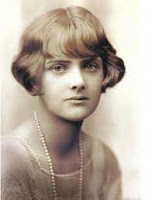Alexander should have warned her. Explosions, Issy, he might have said. Puddles, he could have mentioned. Grass of a less manicured variety than the Botanic Gardens, pronounced absence of paths wider than your dress - a hint would have been helpful.
Had he warned her? This morning's compliment on the strawberry bonnet had been, on reflection, a shade less than sincere, but no, nothing had been said. She would have paid attention to that much.
Loch Katrine waterworks, 1856. A Highland wilderness fast becoming an industrial wasteland. No place for a lady.
Isabel Aird is aghast when her husband is appointed doctor to an extraordinary waterworks being built miles from the city. But Isabel, denied the motherhood role that is expected of her by a succession of miscarriages, finds unexpected consolations in a place where she can feel the presence of her unborn children and begin to work out what her life in Victorian society is for.
The hills echo with the gunpowder blasts of hundreds of navvies tunnelling day and night to bring clean water to diseased Glasgow thirty miles away - digging so deep that there are those who worry they are disturbing the land of faery itself. Here, just inside the Highland line, the membrane between the modern world and the ancient unseen places is very thin.
With new life quickening within her again, Isabel can only wait. But a darker presence has also emerged from the gunpowder smoke. And he is waiting too.
Inspired by the mysterious death of the seventeenth-century minister Robert Kirke and set in a pivotal era two centuries later when engineering innovation flourished but women did not, The Ninth Child blends folklore with historical realism in a spellbinding narrative.
***
I was introduced to Sally Magnusson as a fiction writer when her book, The Sealwoman's Gift was chosen to be read by one of the members of my book group in 2019. We all really enjoyed the book, and you can read my review by clicking here.
Fast forward to this year and the same member requested that we read Ms Magnusson's second adult novel, The Ninth Child, which was enjoyed every bit as much.
The story is told from three different perspectives. We have Isabel, a doctor's wife who has suffered a succession of miscarriages. Kirsty, the wife of one of the labourers working on the building of the Glasgow Corporation Water Works, and, Robert Kirke, a man who wanders the hills in search of something for reasons known only to him.
The three voices are very distinct, and it quickly becomes apparent which one of the characters is speaking. I particularly enjoyed the parts of the narrative told by Kirsty as she is addressing the reader directly and it felt as though we were sat together and she was telling the story for my ears alone.
The character of Robert Kirke is based on the actual historical figure who was an Episcopalian minister during the 17th century. The author has done a marvellous job of taking what is known about him and weaving a story around him that is quite believable whilst being fantastical simultaneously.
The real themes in this book are that of the role of women and class and both are explored through the characters of Isabel and Kirsty; one a woman well down in the economic strata and, Isabel, the upper middle-class wife of a respected doctor. The book also has scenes which include Queen Victoria, whose place in society is at the complete other end of the class system. I think the author does a great job in demonstrating these two extremes.
However, it is in their roles as women in nineteenth century Britain that really brings this novel into sharp focus.The different lives that Isabel and Kirsty led were fascinating to consider. In reality, it is doubtful that these two women would ever have become friends, but the author skilfully creates a set of circumstances in which this becomes possible.
An underlying current throughout is the loss of Isabelle's eight children through miscarriage at varying stages. What could have been uncomfortable to read in the hands of a lesser author was dealt with thoughtfully and sensitively.
I enjoyed this book very much, and I highly recommend it.
ISBN: 978 1473696624
Publisher: Two Roads
About the Author:
Sally Magnusson is the eldest daughter of the Icelandic journalist and broadcaster Magnus Magnusson and the Scottish newspaper journalist Mamie Baird. She grew up in and around Glasgow in houses that were always filled with stories: Closeup author 1the journalistic variety in which both parents were continually engaged; those hilariously told by her mother about her early life in working class Rutherglen; and those told by Magnus straight from the medieval Icelandic sagas which he spent much of her childhood translating from Old Norse into English.
Her first adult novel, The Sealwoman’s Gift (published 2018), is set in Iceland in the seventeenth century. In her memoir Dreaming of Iceland: The Lure of a Family Legend she traces – by way of several generations of her own family – the country’s development from an impoverished, isolated colony of Denmark to the self-assured independent nation it is now.
Her second novel, The Ninth Child (published 2020), is set in nineteenth century Scotland, weaving together folklore and Victorian social history.


































